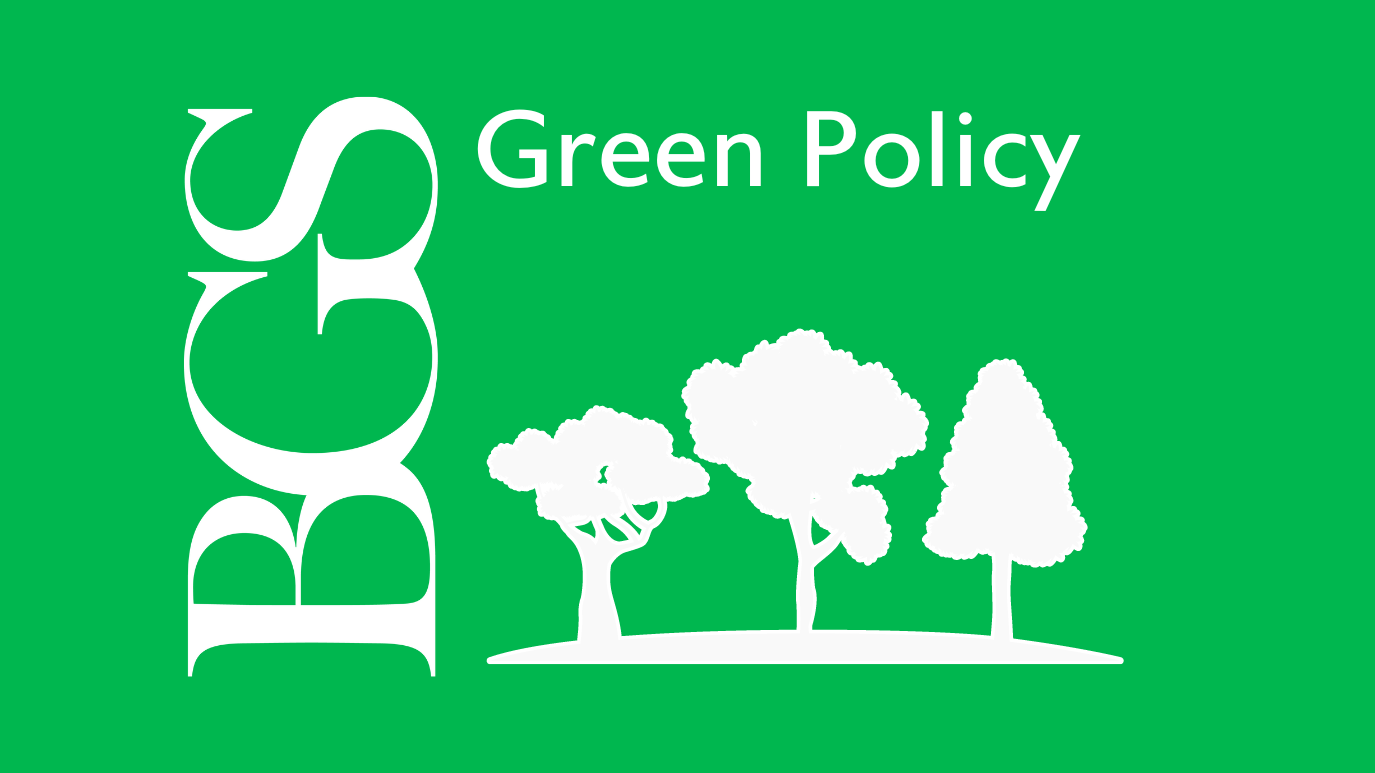I was taught very little about air pollution at medical school in the early 1990s, despite experiencing it daily as a student in London. I stumbled across the charity Global Action Plan’s Clean Air Day1 in June 2020 during the first COVID-19 lockdown. Greener NHS had not yet been launched and having spotted a flyer mentioning air pollution and health, I thought it would be a useful update on respiratory disease.
That webinar exploded my misconceptions. Watching internationally renowned expert in air pollution, Professor Sir Stephen Holgate,2 present the startling statistics about the detrimental effects of particulate matter (PM) on virtually every organ of the body, I was shocked to discover this gaping hole in my clinical knowledge.3 Why was it not being flagged at GP clinical meetings or CPD courses? Had I missed a lecture at a BGS meeting? How had it passed me by?
It turned out that I was not alone. In April 2021, a Report to Prevent Future Deaths4 was published after the inquest into the tragic death of 9 year old Ella Adoo Kissi-Debrah, who died of asthma “contributed to by excessive air pollution” in February 2013. The coroner highlighted the failure of health professionals to explain the risks posed by air pollution to Ella’s mother and concluded that it was the responsibility of the Royal Colleges to communicate with their members that clinicians must raise awareness of the effects of air pollution with patients, to help patients to understand how to reduce the risks to their health. The Royal College of Physicians and Royal College of Paediatrics and Child Health had already published a detailed report and recommendations in 20165 and have followed up with numerous publications since.
Part of the Government’s response6 was to launch the Environment Act public consultation7, asking the public about legally binding targets for PM2.5, the type of PM which enters the blood stream when inhaled and is linked with many of the adverse effects of air pollution. The consultation closes to public contributions on 27 June 2022. The government proposes to halve the current UK air quality limits for PM2.5 from 20 µg/m3 to 10 µg/m3 by 2040, but even then it will still be twice as high as last year’s revised World Health Organisation guidance of 5 µg/m3. This is seen as too little, too late by many health and environmental groups (such as Friends of the Earth8). The air pollution charity Mums For Lungs has created a consultation tool9 to help busy members of the public to reply to the consultation.
As a GP with an interest in older people and promotion of healthy ageing, all my patients are at risk. Due to the health inequalities created by the social determinants of health, disproportionately high numbers of people living in areas of deprivation are particularly affected, especially those living near busy roads.
Outdoor air pollution is estimated to be responsible for the premature deaths of up to 40,000 people annually in the UK, whilst indoor air pollution, for example from wood burning stoves and open fires, cigarette smoking and cleaning products, is thought likely to increase that figure.10 Older people and those with co-morbidities are a high risk group, but how many of us make it a priority to discuss how they can reduce the risks?
Air pollution has been linked to stroke, heart disease, dementia, diabetes, obesity, lung and breast cancer, in addition to asthma and COPD. It is estimated to cost the UK £20 billion a year. In London, every care home, hospital and medical centre sits in an area where the levels of particulate matter and nitrous oxide are higher than the revised 2021 WHO guidelines.11
After that first webinar, I found it difficult to bring up air pollution in consultations. It was not yet second nature to talk about the climate crisis in a seemingly unrelated discussion about cardiovascular risk, diabetes or dementia. Yet, by the time Clean Air Day 2021 came round, I had become firmly embedded in the Greener Practice network and ethos.12 I decided it was time to practice what I preached about active travel. I left my car at home and started cycling the 5 miles to work. With a bit of organisation, lights and hi-viz, my cycle commute became the norm and was only 12 minutes longer than the journey by car. After a 2 minute freshen-up and change into scrubs, I was energised, fitter and started each day feeling uplifted.
There was nowhere outside the practice to safely store the bike, so I brought it into my consulting room. Suddenly there was a visual cue in every consultation. Conversations were invariably initiated by the patient if face-to-face, and we always shared a smile or a memory before I briefly broached the subject of air pollution and benefits of physical activity. This was not limited to patients but involved staff too, and some have made changes as a result. Cycling has become a habit for short journeys I would previously have driven and it's the best part of my day.
There are still plenty of obstacles to getting on a bike in this country - the dangers of cycling on busy roads, confidence cycling, distance to commute, home visits, storage and showering to name a few. But many of these challenges can be overcome. For example, some geographical areas can apply for free bike racks for organisations to enable staff and patients to park safely.13 Many GP practices are investing in a practice electric bike for home visits which has transformed travel in hilly or rural areas, and many employers (including the BGS) participate in the Cycle to Work scheme.14
Bikeability15 is the UK government’s national cycle training programme to help people cycle or improve confidence on roads.
Wheels For All16 is a nationally recognised programme with centres across England to increase accessibility to adapted bikes for children and adults. A patient in his seventies with increasing isolation and low mood saw my bike and expressed his sadness at not being able to cycle due to his Charcot foot deformity. I signposted him to the local Wheels for All group and he rang me a few weeks later to tell me that they had changed his life with an adapted bike he could ride safely. Sustainable healthcare principles in action- health promotion, patient empowerment and low carbon alternative to medication.
We can each do more to create a healthy planet. We urgently need to build momentum and encourage bold actions. Joining groups like Health Declares,17 Pharmacy Declares,18 Doctors for XR,19 and Greener Practice12 gives us the confidence to raise our voices collectively. As clinicians we are still polled amongst the most respected professions in the country and have a powerful stance from which to lobby the policy makers, councillors and MPs about the urgent need for equal access to active travel.
Idling in traffic in a car has been reported to increase the levels of pollution we’re exposed to by up to 3 times compared with cycling.20 It’s obvious, but the more of us who leave our cars behind and walk, cycle or use public transport, the fewer cars will be on the roads, the safer the roads will be and the less we’ll be contributing particulate matter with each journey.3 As a population we’ll age more healthily and the demand for healthcare will reduce as air pollution reduces.5 Electric vehicles (EVs) are a step forward, but still require valuable resources and embodied carbon to be manufactured and transported, and importantly they continue to create particulate matter through brake and tyre friction. In fact, a publication last week stated that tyres, especially if new, are responsible for nearly 2000 times higher particulate matter generation than exhaust tailpipes as the weight of the car increases, so heavier EVs are clearly not the golden bullet for reducing air pollution.21
Clean Air Day 2022 is fast approaching. Is there anything you can do to reduce the pollution you create with each car journey? I’ve no idea what impact my presentations and discussions have had on patients and my local community, but I’d like to think that the more of us who know the facts, the more likely we’ll consider being role models and changing our own behaviour. The benefits will ripple out to our patients, our planet and generations to come.
References
- https://www.actionforcleanair.org.uk/campaigns/clean-air-day
- https://youtu.be/2xF0GD_WOhs Air pollution: the public health challenge of our time Professor Stephen Holgate GAP webinar Feb 2020
- https://www.gov.uk/government/publications/health-matters-air-pollution/health-matters-air-pollution#resources
- https://www.judiciary.uk/wp-content/uploads/2021/04/Ella-Kissi-Debrah-2021-0113-1.pdf
- https://www.rcplondon.ac.uk/projects/outputs/every-breath-we-take-lifel…
- https://www.gov.uk/government/news/government-responds-to-coroner-after-ella-kissi-debrah-inquest
- https://consult.defra.gov.uk/natural-environment-policy/consultation-on-environmental-targets/
- https://friendsoftheearth.uk/system-change/5-things-you-need-know-about-new-environment-act
- https://www.mumsforlungs.org/our-campaigns/environment-act-consultation
- Holgate ST. 'Every breath we take: the lifelong impact of air pollution' - a call for action. Clin Med (Lond). 2017 Feb;17(1):8-12. doi: 7861/clinmedicine.17-1-8. PMID: 28148571; PMCID: PMC6297602.
- Smith R. London mayor plans to take more action to reduce air pollution BMJ 2022; 376 :o678 doi:10.1136/bmj.o678
- https://www.greenerpractice.co.uk/
- https://parkthatbike.info/
- https://assets.publishing.service.gov.uk/government/uploads/system/uploads/attachment_data/file/845725/cycle-to-work-guidance.pdf
- https://www.bikeability.org.uk/
- https://wheelsforall.org.uk/wheels-for-all
- https://healthdeclares.org/
- https://www.pharmacydeclares.co.uk/
- https://www.doctorsforxr.com/
- https://www.mumsforlungs.org/resources-and-downloads
- https://www.theguardian.com/environment/2022/jun/03/car-tyres-produce-m…


